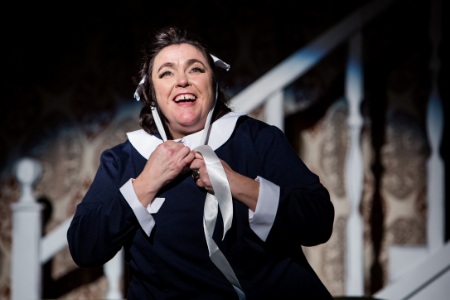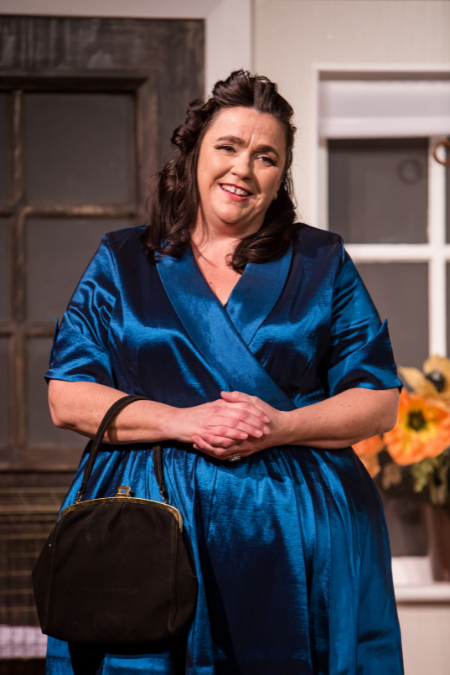It’s 1974 and 8-year old Jo is snuggled up on the settee idly glancing at the telly when there, on the screen, is a woman unlike anyone Jo has ever seen on TV. Jo knows, in that moment, the woman before her is uniquely like the woman she herself will become.
That woman is Hattie Jacques.
Forty years later, and Jo has followed Hattie’s footsteps; she too is an actress, but why does she only get cast as the nurse, never the surgeon? Why is she too fat to play Lady Macbeth? Why does she have a cupboard full of tabards? Could it be that nothing changed for women like Jo since Hattie did Carry On?
Becoming Hattie has its finger on the pulse of how women feel about their body image.
– Female arts
Christmas is an absolute powerhouse, commanding the stage even when she’s on the verge of tears. The tears feel real, they unite women.
- Exeunt

A note from the Director Mary Swan:
“My vision for the piece was to explore Hattie from a feminist perspective, using her life and career as a mechanism for exploring contemporary attitudes toward women’s bodies and the lack of body shape diversity amongst the women we are presented with on stage and screen.
In Susie Orbach’s book, Fat is a Feminist Issue written in 1978 she says: “To be fat means to be excluded from contemporary mass culture”
If our media continues to ignore and exclude larger women from our screens then nothing will have changed since 1978.”
“this play packs a harder punch than a simple walk down memory lane[…..]powerful and relevant”
– British Theatre Guide
Whilst addressing contemporary issues around body image, sexism and sizeism, Becoming Hattie is full of humour and charm and is sure to delight fans of Hattie’s most well-known work simultaneously lifting the lid on the life of the woman off-screen.
This is an incredibly powerful and thought-provoking show. It has the ability to both entertain and challenge the audience…a must-see show
– Alton Herald
Thoughtful, funny, warm and nostalgic, this one-woman show is an affectionate look at the life and career of the remarkable Hattie Jacques and a witty, caustic look at modern life in show business and its cultural attitudes toward larger women.
















